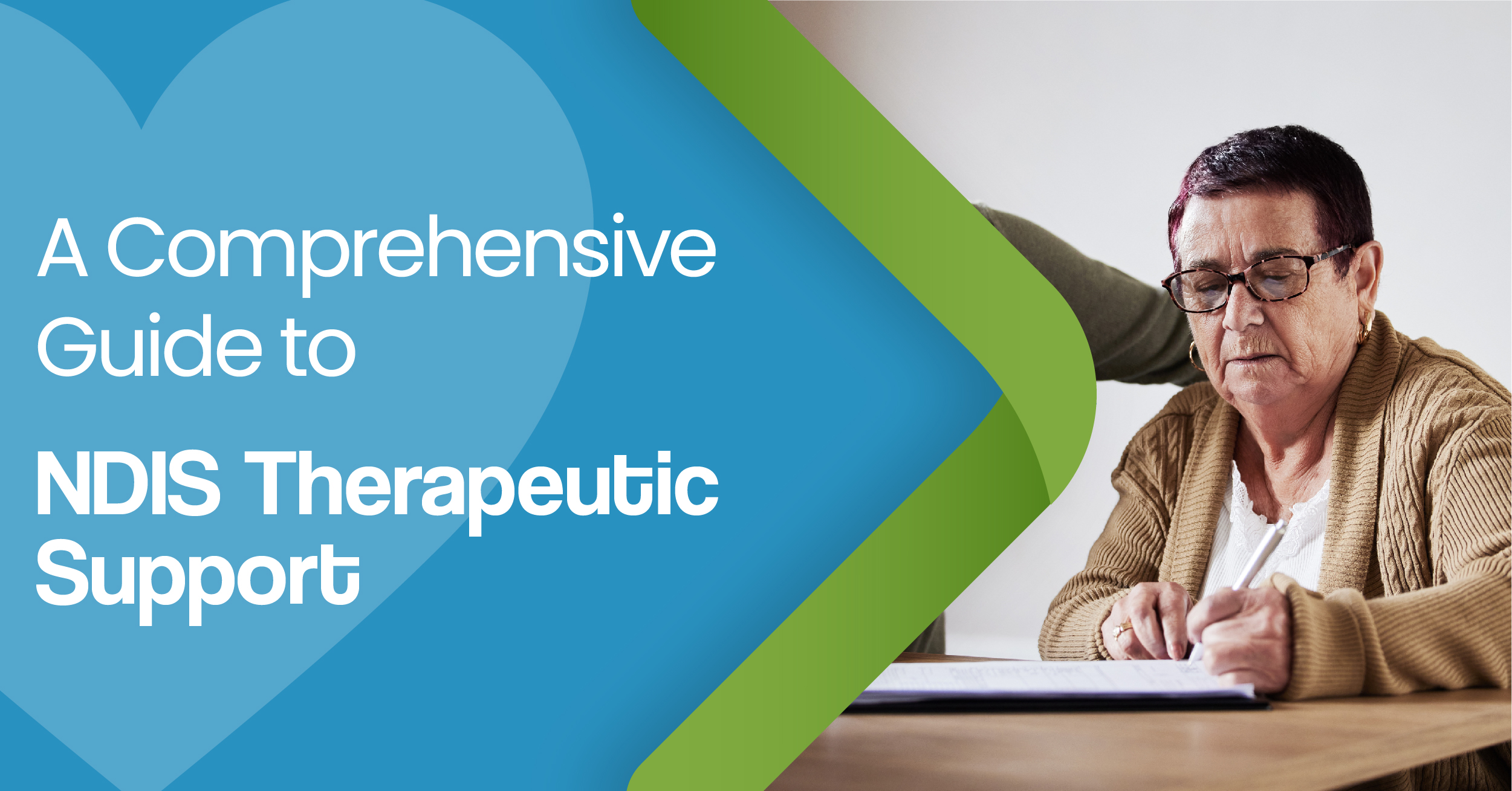Navigating the National Disability Insurance Scheme (NDIS) can be challenging, especially when it comes to understanding the various types of support available. One crucial aspect is NDIS Therapeutic Support, designed to enhance the well-being and independence of individuals with disabilities. This blog will provide an in-depth look at NDIS Therapeutic Support, covering everything from what it entails to how you can accses these essential services.
What is NDIS Therapeutic Support?
NDIS Therapeutic Support encompasses a range of services aimed at improving the functional capacity of individuals with disabilities. These supports are tailored to
meet the unique needs of each participant, fostering greater independence and enhancing overall quality of life. Services under this category include occupational therapy, physiotherapy, speech therapy, and psychology.
The Importance of NDIS Therapeutic Support
NDIS Therapeutic Support plays a vital role in the lives of people with disabilities. It helps individuals develop and maintain the necessary skills for daily living and participation in the community. Here are some key benefits:
- Improved Functional Capacity: Therapy can significantly enhance mobility, communication, and self-care abilities.
- Enhanced Quality of Life: By addressing specific needs, therapeutic support can lead to a more fulfilling and independent life.
- Personalized Care: Services are tailored to meet the unique needs of each participant, ensuring effective and relevant support.
Types of NDIS Therapeutic Support
- Occupational Therapy
Occupational therapists assist individuals in developing skills for daily living, work, and leisure activities. They provide strategies to improve motor skills, cognitive functions, and sensory processing abilities.
- Physiotherapy
Physiotherapists focus on enhancing physical mobility and strength. They work with participants to manage pain, increase movement, and prevent further physical impairments.
- Speech Therapy
Speech therapists help individuals with communication disorders. They address issues related to speech, language, and swallowing, enabling participants to communicate more effectively.
- Psychology
Psychologists provide mental health support, helping individuals manage emotional and behavioral challenges. They offer counseling and therapy to improve mental well-being.
How to Access NDIS Therapeutic Support
To access NDIS Therapeutic Support, participants must have an approved NDIS plan that includes funding for these services. Here are the steps to follow:\
- Assessment: Undergo a comprehensive assessment to determine your needs and eligibility.
- Plan Development: Work with your NDIS planner to develop a personalized plan that includes therapeutic support.
- Choosing Providers: Select registered NDIS providers who offer the therapeutic services you need.
- Implementation: Begin receiving services as outlined in your NDIS plan.
Finding the Right Provider
Choosing the right provider for NDIS Therapeutic Support is crucial for effective care. Consider the following factors:
- Experience and Expertise: Ensure the provider has qualified and experienced professionals.
- Range of Services: Look for providers offering a comprehensive range of therapeutic supports.
- Reputation: Check reviews and testimonials to gauge the provider’s reputation.
- Disability Support Worker: A professional who assists individuals with disabilities in daily activities.
- Disability Care Service: Services designed to support individuals with disabilities in various aspects of life.
- Home Disability Support Service: Services provided in the comfort of your home to assist with daily living activities.
Conclusion
NDIS Therapeutic Support is a critical component of the NDIS, offering essential services that enhance the lives of individuals with disabilities. By understanding what these supports entail and how to access them, participants can make informed decisions to improve their well-being and independence. Always ensure to choose the right provider to receive the most effective and personalized care.
FAQs
1. What is NDIS Therapeutic Support?
NDIS Therapeutic Support includes services such as occupational therapy, physiotherapy, speech therapy, and psychology aimed at improving the functional capacity of individuals with disabilities.
2. How do I access NDIS Therapeutic Support?
To access these supports, you need an approved NDIS plan that includes funding for therapeutic services. Work with your NDIS planner to develop your plan and choose registered providers.
3. Can I receive NDIS Therapeutic Support at home?
Yes, many providers offer home disability support services, allowing you to receive care in the comfort of
your own home.
4. What should I consider when choosing an NDIS provider?
Consider factors such as the provider’s experience, range of services, and reputation. It’s essential to select a provider who can offer personalized and effective care.
By leveraging NDIS Therapeutic Support, individuals with disabilities can achieve greater independence and improved quality of life. Whether you need occupational therapy, physiotherapy, speech therapy, or psychological support, understanding your options and choosing the right provider are key steps towards a better future.

